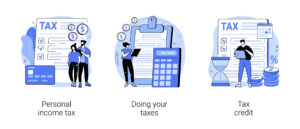India Teaming Up With United States in Joint Effort to Find Hidden Cash

India is reportedly going after so called “black money” which Indian citizens who are living abroad, are apparently hiding in offshore accounts, including here in the United States. According to reports, the Indian Government believes that as much as $350 billion is hiding in unreported bank accounts and other financial institutions.
India is already gathering and using information from several countries, including Japan, Sweden and Portugal among them. However, the biggest boon is expected to come from a new program created by the U.S. Government known as the Foreign Account Tax Compliant Act, or FATCA.
Under the program, India will indirectly inform the IRS of any Americans with money and/or investments in India of $50,000 or more. It is expected that the IRS will return the favor to India and report the same information regarding Indians with bank accounts and other financial interests in the United States.
Government officials in India have already begun their efforts to find and track the necessary information for the U.S. government. They have also started to gather a large amount of information regarding their own non-taxpayers. Millions of Indians are known to work around the world but are suspected of leaving significant portions of their income in the country where they worked when they return home to India.
Whether you agree with FATCA or not, it looks like it’s here to stay and it looks like it will be successful in finding noncompliant taxpayers. If you need help to make ensure that you are compliant with your international taxes, then contact GROCO at 1-877-CPA-2006 or click here.
Income the IRS Can’t Touch
Income the IRS Can’t Touch There’s one readily available and legal source of untaxed income that we know of: municipal bonds. These securities are issued by state and local governments, school districts, hospitals and other public agencies to support community projects and services. To permit these worthy endeavors to raise money economically, Uncle Sam exempts…
Avoiding Real Estate Tax Revaluations
Avoiding Real Estate Tax Revaluations by Steven Singer, CPA As a result of the passage of Proposition 13 almost thirty years ago, real estate owners currently enjoy paying property taxes based on the property’s purchase price, value of improvements and an annual increase of 2% over the previous years’ assessed value. As a result of…
Annuities in Qualified Retirement Plans
Annuities in Qualified Retirement Plans By Russell Hill Using annuities in qualified retirement plans. Qualified annuities reduce your current taxable salary in addition to accumulating tax deferred earnings, when you contribute money to an annuities program through an employer (as one of the investment options in a salary reduction retirement plan). Those who work for…
Paying Too Much In Taxes?
Paying Too Much In Taxes? By Theodore Lanzaro Now that the end of the year is near, it is time to review a few business tax tips for 2008. Anyone who owns a business or is planning to start a new business in 2008 should be thinking about maximizing the profitability of their business and…


